|
|
|
This is a post from January 2011 following a trip to Syria and Lebanon with CBH Viewpoint 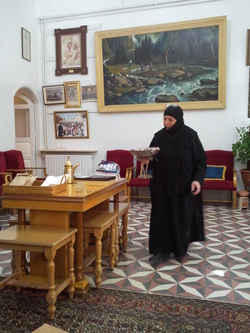 It happens to me every time I leave the country. I leave with a sense of trepidation and concern, unsure about what I will experience, frustrated because I'm never sure what to pack or if I should have said "yes" to the travel or not. I brace myself for the uncomfortably of inconvenience and the unknown of not having what you need or want in a given moment and as always, these are hard but good experiences for the control freak. So after some days of recuperation and adaptation, I begin to wake up, my senses are heightened and I am more aware of my surroundings than ever, and inevitably, I begin to see God and I fall in love. Today was that kind of day; I saw God in everyone and in every thing, today stones became sacred, laughter like incense and food a sacrament, all of it a reflection of the divine.I'm not sure when it began, but the love affair with this place and it's people, with God in it all has been wonderful and surreal for me today. Maybe it began in the early morning sunlight on the steps of St. Christophos in SedNayay, Syria where our team gathered together to pray. You could hear the longing in the voices that sang God's praises and spoke out praise. 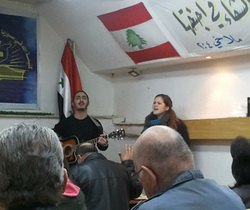 Perhaps it began as we made our ascent up into the mountains where the air is crisp and the sky is clear and visited an ancient church, Our Lady of SedNaya. We gathered there with believers and listened to the cantors and marveled at the turiffers and acolytes, we stood in reverence as we observed Holy Mass and the congregants celebrated Eucharist. The church itself was a sight to behold, built in the 5th century by Justinian to venerate an icon believed to have been drawn by the hand of Luke the evangelist and author of the Gospel. Maybe I began to see it all in the face of the monk I met on the top of that same mountain after we pressed higher towards the peak stopping at the ancient monastery of the Sepharim. Padre Michael only spoke Arabic and Koine Greek because he too has devoted his life to studying the word in its original languages. And so, there we were he and I, talking about the ekklesia and the adelphoi, and so on. As we explored we discovered caves and Padre Michael explained that these caves were protection for persecuted Christians who had fled from Jerusalem on their way to Antioch and later housed monks who had set out to live the disciplined life. I know that I must have seen it in the eyes of Madre Pelaggio, the nun who welcomed us at the church of St. Thekla. She told us the miraculous stories of this woman apostle who had traveled with Paul and had later ministered to the Gentiles there in what used to be Seleukia. Mother Pelaggio and the sisters invited us into their quarters and served us coffee and cookies and asked us to sign their registry. I have seen it for a week now in the face of my sugary sweet roommate, Jennifer Helvering who crinkles up her nose and dives into every food to which she is introduced proclaiming it delicious, amazing and "out of control." It is the way she challenges me to leave my comfort zone and do things like down a steaming cup of Turkish coffee in one sip like it were a jello shooter at a New Year's Eve bash. 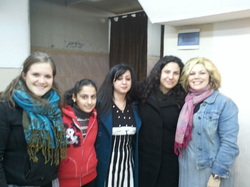 I was aware of it tonight for sure as we gathered with the Church of God in Damascus, holding hands and praying in Jesus' name, singing and laughing and of course, eating together and finding we are much more alike than different. I see God alive and at work in the life of Viviane, a young college graduate who translated for me tonight and told me, "I love Jesus, I want to give him everything." In a war torn country in a small church of 25 believers we prayed together for revival and look to God for the miracle of sustaining and growing their number and trusting that this church will be a part of changing the world. And so now it is time to count my blessings and sleep, aware and awake though I am to God at work in this place and in me, thankful for my friends along this journey, those with me here and those with me in spirit. God be praised.
0 Comments
 Before you delete me from your facebook feed; know that I’m not suggesting that we become patrons who broker in the buying and selling of the dignity of women, rather that we should become friends with people in the broken places of the world. It occurred to me after several years of post-doctoral education, a myriad of multi colored, matted degrees framed on my wall, after producing dozens of syllabi and grading an untold number of theses and exegetical projects, it became clear that something was missing. I needed to get outside the ivy colored walls and I needed to do this on a regular and ritual basis. For me it began with preaching on rotation at the local jail, singing and sharing sacred texts with women weeping in their orange jumpsuits, photos of their children hanging round their necks the night before Christmas. Today I lead a group of women who serve and share light and love with dancers in local strip clubs. It seems imperative for those of us who have given ourselves over to the pursuit of God through academic preparation, for those who have committed to honor God with our minds believing study is the highest form of worship; it seems necessary that we take our theological constructs out into the world where they can be challenged, tried and made known. We, who write theology and pen insights for biblical commentary, those of us who read the ancient languages and preach and exposit texts must also be found where real life happens, in the dark hovels of strip clubs and in the game rooms of the community centers, under the bridges in the tent cities. We must be found among real people, the ones who feel forgotten, unloved and condemned by this God we study, pursue and proclaim. Every once in a while we should come to class smelling like stale beer and cheap perfume, giving away our sanitized selves to really be with people not so that we help them transform into upstanding suburbanites who tithe but because Jesus said he was in them, because part of what we need to know we can only learn from the least of these. We need to get out and walk among the desperate, the lonely, the addicted and infirm, we need to explore whether what we’ve learned really holds up under the devastation of poverty and loss and crystal meth. This is, after all what Jesus did, the incarnate One walked and talked and dined with the harlots, the sick and the poor. It is good for us then, for those of us who have decided to follow him into years of graduate education and sleepless nights with our coffee soaked souls and ever mounting debt into the meager salaries of a life spent in vocational ministry, for us to be found doing what Jesus did so we strip away what is excess, all that is not needful and we find what is true, what is lasting, what remains, so that we remember why we starting studying in the first place.  Want to know how it all began...click here to listen to this talk I gave at Indiana Wesleyan a few years ago during Summit Week. (To skip intro begin at 6.10) The Butterflies of Hope Outreach is a ministry of shared life, love and light in Jesus name. Through the cooperation of Madison Park Church, and the prayerful support of several women and men in our community, we are enabled to share our lives together with women who work in local strip clubs in our town. If you are in the Anderson/Indianapolis area and are interested in being a part of this incredible ministry, please email me. A community-wide interest meeting is scheduled for Wednesday, August, 28 at 5.30p.m. at Madison Park Church. If you would like to invite me to come share about our ministry with your church, women's group or university please contact me via the contact form provided on this blog. 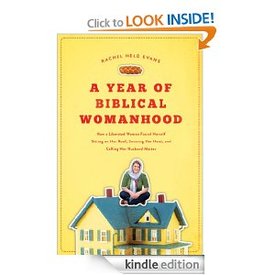 Read Kathy Keller's Review on Gospel Coalition here My Response Hi Kathy, Thanks for your review here. I recently led a book club group around Rachel's book. Both of her goals were accomplished in our case; we talked seriously about the ways in which we choose passages to be literal or not and we had open and honest discussion about biblical interpretation. As a Professor of Biblical Studies, some parts were difficult for me as well. Not only are norms of historical critical exegesis left out, but also basic hermeneutical principles. However, I would like to suggest that a major piece missing is an understanding of reception history. As you note, there are ways to interpret scripture that are long standing in academic circles, however, it is important to acknowledge that across the centuries people have not always followed these rules and have historically ripped passages from ancient, sacred texts and built oppressive theology upon them. Additionally, we should be clear that the NT does not offer a monolithic agreement with the changes to OT practices introduced by Jesus and Paul, i.e., Peter and John continue to go to Temple after the crucifixion and resurrection (Acts 4,5), Jesus never says circumcision should be ceased, this is introduced by Paul and will be the major stumbling block of his ministry. The notion that Jesus' life and teaching, crucifixion and resurrection meant the end to varied interpretation and heated debate and schism over this is not faithful to the text. One need only to read the Pastorals and the Johannine letters to read into the troubles of subsequent generations of the church. Of course, I wish all books about the bible were written by scholars, folks who had devoted life and training to such but that is my bias. Rachel gave the women in my group a jumping off point and our Spirit filled discussions carried us through. 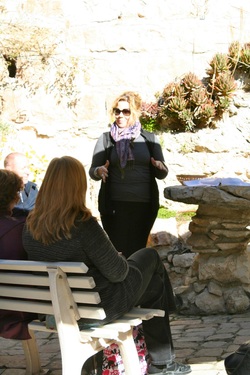 Introduction to History and Literature of New Testament I This course will examine the Hellenistic-Roman and Jewish world into which Jesus was born and the New Testament emerged. The student will be introduced to the debate over the topic of the historical Jesus and will craft a portrait of Jesus within the context of first century Judaism for examination. The classroom experience will include discussions on methodology and exegesis as we move towards a study of the synoptic gospels and John. This course will challenge students to read Scripture through the lens of the historical, theological and literary contextual nuances of the first century as well as help them to see the true socio-political motivations behind the crucifixion and to be able to mine the text for the central message of Jesus’ earthly ministry. Fall 2013- Residential Syllabus Fall 2013-Online Syllabus *Students should note that some details are subject to change however, and are marked as such, however, book and reading assignments are set |
Subscribe Today for Free GiftBLOG
Archives
June 2019
Categories
All
|

 RSS Feed
RSS Feed